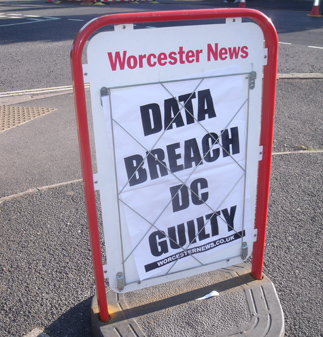For security news, we first have to talk about what is news. As the great former editor of The (London) Times, Harold Evans put it, ‘news is people’. News is people doing and saying.
News is extraordinary; that is, it differs from the ordinary. ‘Dog bites man’ is news; ‘Man bites dog’ is even more newsworthy. News has a geographical aspect; an attack on a cash-in-transit van in Kathmandu is not as interesting to UK security news readers as an identical attack somewhere in the UK.
If it happens at the convenience store in your part of town, you are curious; for a deep-seated reason. Being informed is necessary to being a successful, risk-aware human. Robots on the verge of taking over your job? Better look for a different sort of job. Cash-in-transit robberies on the rise against the branch of retail that you work in? Better be aware of the possibility of such an attack happening to you.
And it is only fair to add that in journalistic terms, news is to use a law term a breach of the peace. ‘Two die in car crash’ is, cruel though it sounds, ‘better’ news in journalistic terms than one dead; £2m stolen in a robbery ‘better’, more newsworthy, than £200.
It may almost be stating the obvious that news has to be timely, whether it comes in hourly, daily, weekly or monthly instalments. News that the Archduke Franz Ferdinand did not die in Sarajevo in June 1914, and that World War One was a mistake, if true would be highly newsworthy, but more so if it came nearer the date; now that everyone from that era is dead, it would be (if true) merely of interest.
The meaning of security news
Security news can mean something perhaps not appreciated by the public; that body of knowledge held by the public has not caught up with reality. As mentioned at a Policy Forum for London keynote seminar, on crime and policing in London, on October 19, some 100,000 Security Industry Authority-badged officers are working in London; compared with about 30,000 police officers; and further budget cuts may mean that the total number of bobbies falls, in a city of rising population.
Yet, ever since the SIA came into being, in the later 2000s, it’s been true to say that SIA-badged security staff (let alone the in-house security officers, not required to be badged) far outnumber police. Yet far more news about police is in the public domain than security news, and in particular about private security.
That is because of the nature of private security; it’s a service, sold on the market, for customers. Those customers may reasonably want to keep that security to themselves, and not give it publicity, even if something newsworthy happens, whether good or bad (in security news terms). A customer will hardly want to own up to a loss from theft; it may even prefer to say as little as it can, if security goes smoothly (and when in any case, in news terms, not much is newsworthy).
Police by contrast have on their staff press officers whose job it is to publicise things, whether to help police with their inquiries or more broadly to promote police as doing a good job for tax-payers.
Picture by Mark Rowe: Worcester, late August, a news poster outside a newsagents, publicising news of a local council data breach.










